Pride portraits
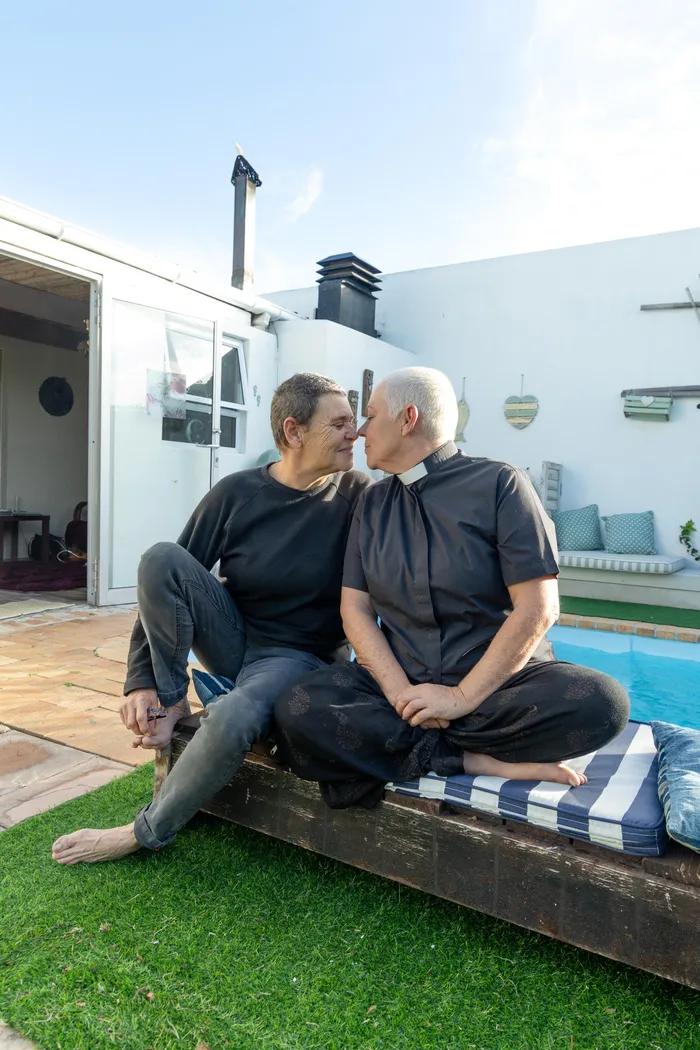
Life partners, Carol Lennon, left, and Sharon Cox are two of the people photographer Tamara Wilson captured as part of her series, Pride Portraits. The Cape Town-based photographer undertook the project as a “celebration of all identities within religious contexts”.
Image: Tamara Wilson
Pride Portraits is a series by Cape Town photographer Tamara Wilson that explores the intersection of queerness and religion. Through intimate portraits, the project highlights how queer individuals express their spirituality despite often facing exclusion within religious spaces. Wilson’s work aims to challenge conventional norms and amplify voices that are frequently marginalised in faith communities. The series seeks to promote a broader cultural shift towards acceptance and inclusion of all identities within religion.
Thuli Mbete
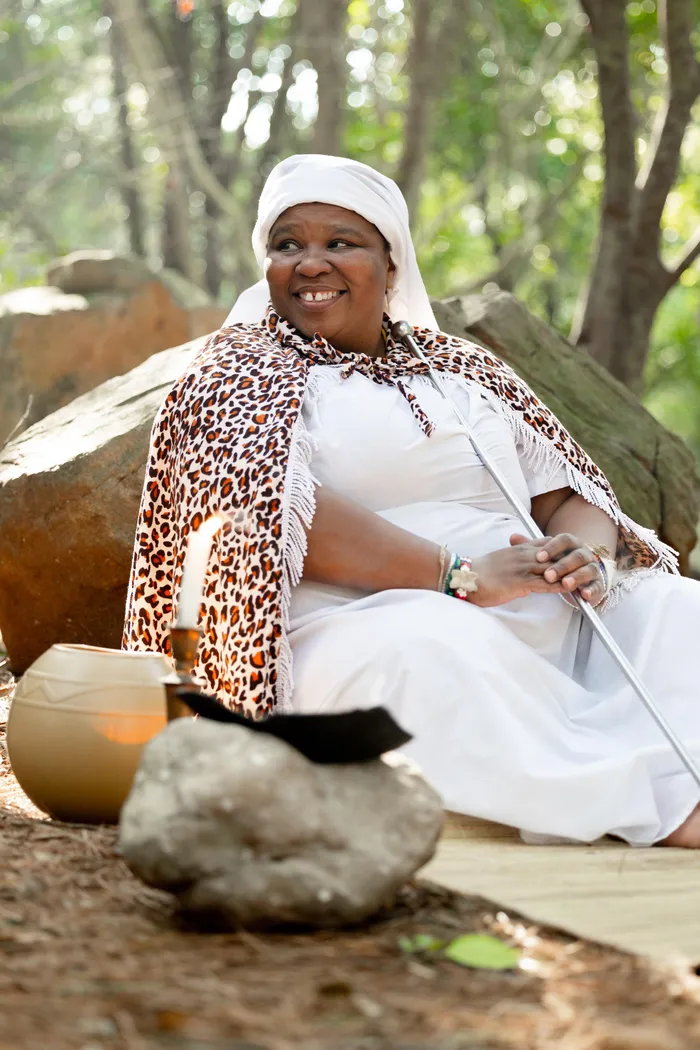
Thuli Mbete
Image: Tamara Wilson
“Being a Gobela [a person who trains sangoma initiates] calls on one to raise, nurture and cultivate those entrusted to me by their ancestors. I am blessed to have a home that is glittered with those who are part of my [LQBTIQA+] community, and support from my own mother who has been my pillar of strength along this journey. May these portraits of me remind the audience that family is not limited to biological kin, but your chosen family will always find you.”
Sharon Cox and Carol Lennon

Sharon Cox and Carol Lennon
Image: Tamara Wilson
Sharon (right): “Like the majority of people in this country, I grew up in religion. It was always a part of my life; a part that I valued deeply. I eventually would turn my back on organised religion, after becoming a critical thinker – as opposed to a passive consumer of religion. I could not sit and listen to all the things and people that God supposedly condemns. This included, but was not limited to, how apartheid was justified, how patriarchy…played out in very real and concrete ways – and how I was somehow the spawn of the devil. “Later, I would find a denomination with a social justice focus, which was also affirming of who I was and who everyone else was. I then became actively involved in this ministry and eventually went on to study theology. I never sought ordination to become a preaching pastor. It was, and still is, my belief that how I live in the world and what I do daily is my ministry. This has served me well, for example, in terms of training stakeholders, the majority of whom are people of faith – a faith viewed through a patriarchal lens, so they very often hold narrow and conservative views.“I feel that I would miss the point completely if I do this work [sensitisation of State officials] and leave faith out of it, as it is the key driver of discrimination, prejudice and being able to access affirming services as LGBTIQ+ persons. It’s not always easy, but it is necessary.”Carol:“I do not follow hate, i.e. organised religion. Humanism is my nature.”
Vusikhaya Khumalo
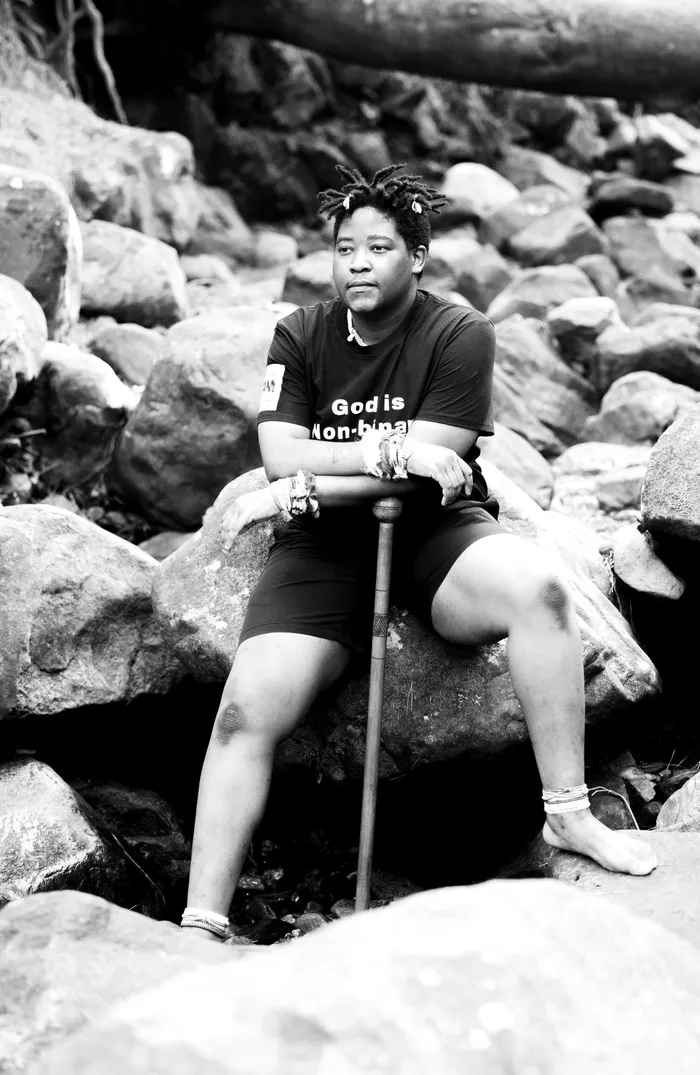
Vusikhaya Khumalo
Image: Tamara Wilson
“These pride portraits are a reminder of the beauty that I possess as a black trans man. My journey in traditional healing affirmed that diversity in gender expression and sexuality has always been a part of our culture, criminalised during a traumatic period of colonisation. I would like my images to be a reminder that, in a world that has weaponised our existence, be you, be proud.”
Tara Weinberg
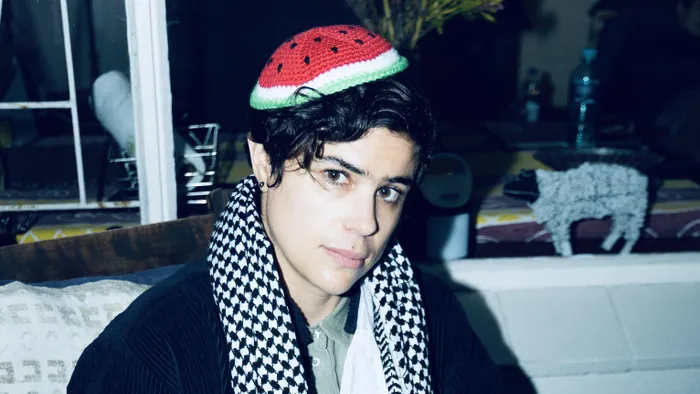
Tara Weinberg
Image: Tamara Wilson
“I am a queer South African jew, drag king and member of South African Jews for a Free Palestine [SAJFP]. I come from a family of anti-Zionist Jews. “I believe that Palestine, like South Africa, is subject to a legacy and ongoing process of settler colonialism, accompanied by the accumulation of property, including land, by white settlers. In both South Africa and Palestine, people have waged struggles against the structural inequalities wrought by settler colonialism. And in both places, queer people continue to insist that there is no liberation for some, without liberation for all. “In spite of the clear opposition by many Jews, including queer Jews, to the state of Israel and its actions, Zionism has attempted to invalidate any Jews who are against it. The refrain that anti-Zionism is anti-Semitism implies that Zionism and Judaism are one and the same. Zionists attempt to discredit SAJFP members and other Jewish anti-Zionists by saying they are not ‘real Jews’. They use a similar tactic against queer people who stand in solidarity with Palestine, claiming that the existence of queerphobia in Palestine makes queer support incompatible. This ignores the fact that queerphobia exists in every society, as every queer person can attest. It also seeks to erase the existence of queer Palestinians. “I stand in solidarity with Palestinians fighting for their very survival, however they identify. I also stand in solidarity with those fighting for their lives in Sudan and the Congo, including our queer comrades there. There is no pride in genocide.”
The late Muhsin Hendricks
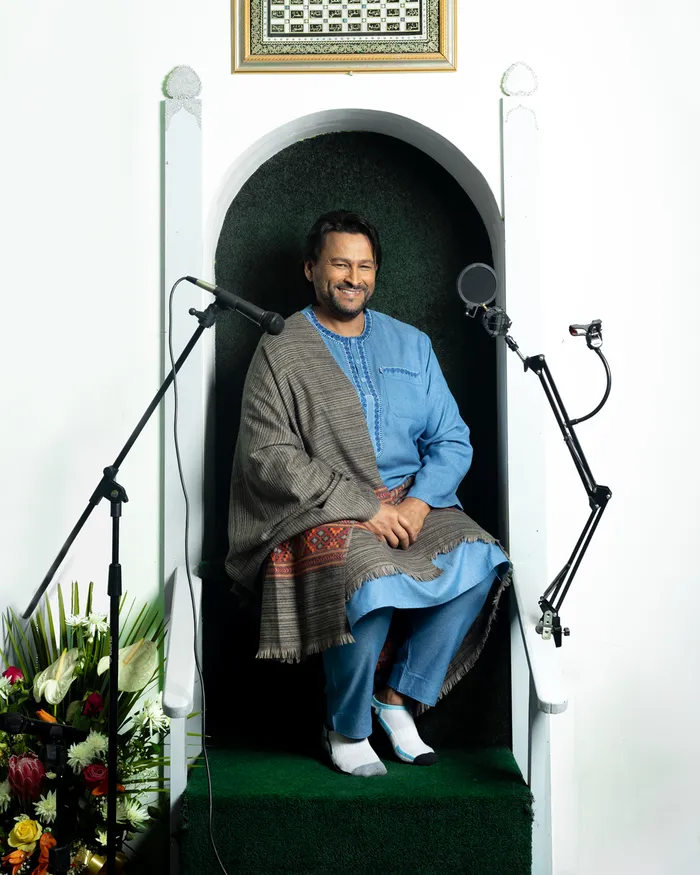
Muhsin Hendricks
Image: Tamara Wilson
“I grew up in a religiously-conservative community where my own grandfather, leader of the local mosque, preached that gay people would go to hell. Homosexual activity is still condemned within much of mainstream Islam, as well as across much of the African continent. For years, I’ve struggled over my own sexual identity. I studied religion, got married to a woman and had three children. It was only in 1996 that I was able to bring myself to come out as queer. My work is to advocate for greater acceptance of LGBT people within Islam, for new interpretations of Islamic views on homosexuality, and to support marginalised Muslims and promote a vision of Islam that is all-inclusive and compassion-centred.”
Originally published on Beyond the Margins, a platform that showcases underrepresented voices and perspectives through art, writing, and storytelling.